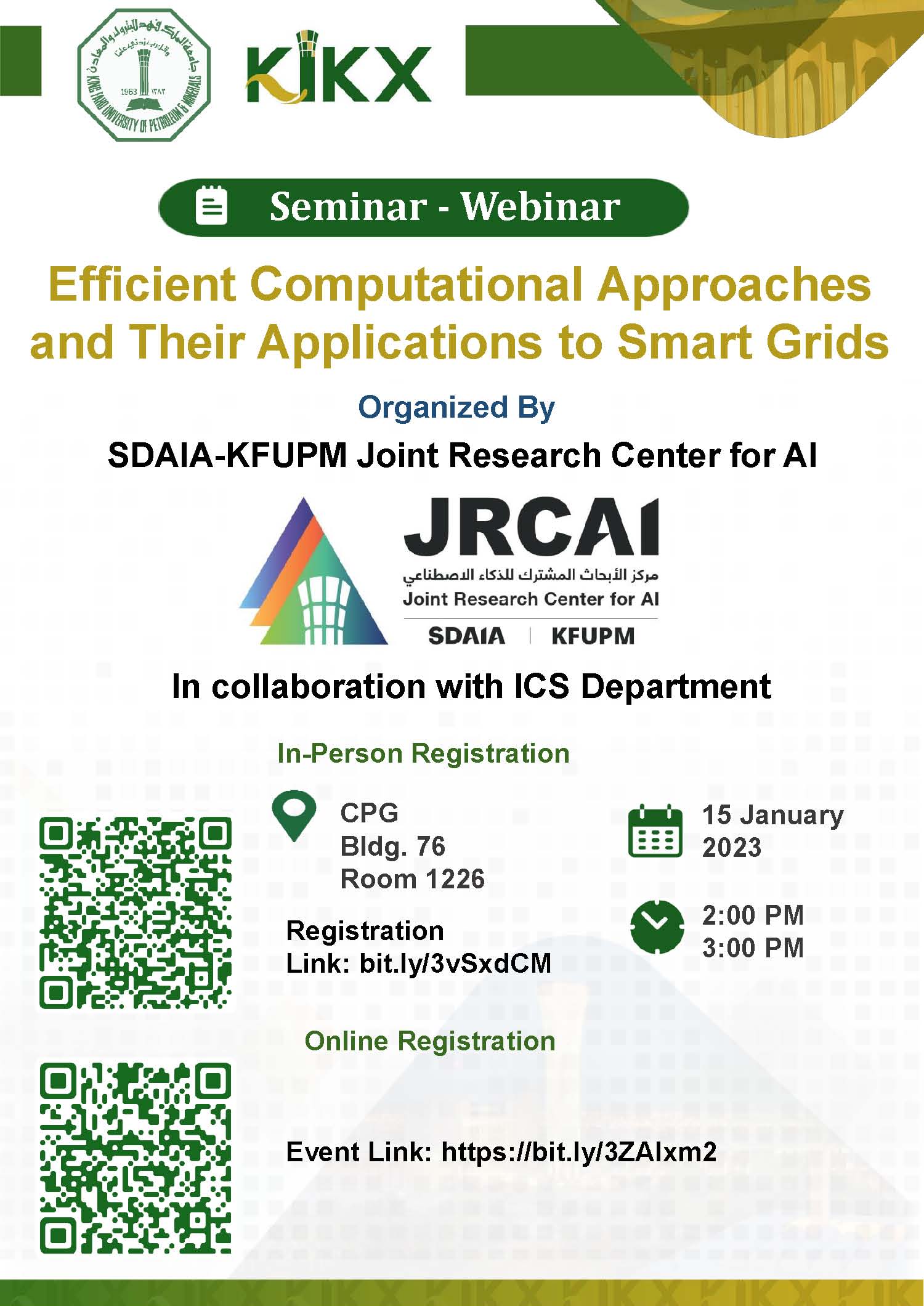Efficient Computational Approaches and Their Applications to Smart Grids
In this talk, efficient computational approaches to game theoretic model, large scale optimization problem and reinforcement learning framework will be introduced to solving different challenging problems. In a smart grid context, a demand response strategy of electric vehicle charging is modelled by a stochastic game for controlling the electric vehicle charging behaviors. Moreover, a two-stage stochastic game theoretical model is proposed for energy wholesale market integrating renewable energy sources and demand responses. In this work, the risk measurement technique, conditional value at risk (CVaR), is harnessed to estimate the overbidding risk. Concerning the privacy, a research branch of reinforcement learning (RL) will be presented by making the first attempt to apply RL-based algorithms in the energy trading game among smart microgrids where no information concerning the distribution of payoffs is a priori available and the strategy chosen by each microgrid is private to opponents, even trading partners. To solve this challenge, a new energy trading framework based on the repeated game that enables each microgrid to individually and randomly choose a strategy with probability to trade the energy in an independent market so as to maximize his/her average revenue. In addition, for a large scale economic dispatch problem, different distributed optimization algorithms are developed including a fast event-triggered scheme and consensus based multiagent methods.
